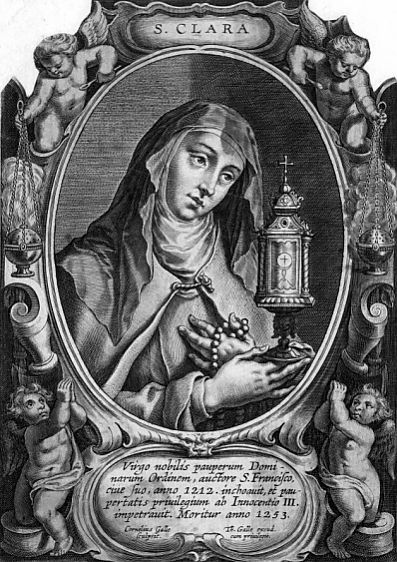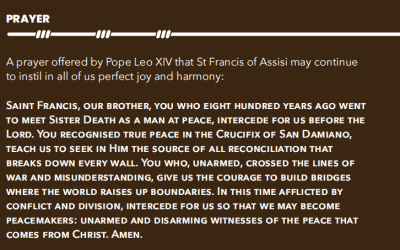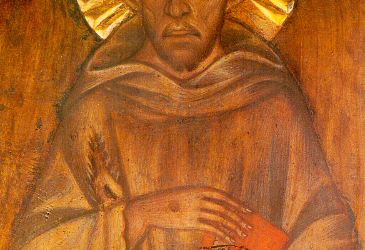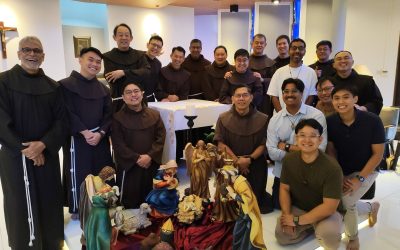
In particular, I notice that Clare lives and suggests discernment as a path of purification: purification of the gaze, of the heart, and of the will.
Purification of the gaze
The starting point is the reality in which we find ourselves; the reality that “we are”, that each of us “is” by nature and by grace. Preconceptions and prejudices can distort our reading of what is going on within us, in our community, in the Church, or in society. Is this not a factor in many misunderstandings, misconceptions and conflicts?
Purify the gaze to see how God sees us, without distorting filters. Clare reminds us that by being like Jesus, making his gaze our own, we can see reality in truth, beyond the changes produced by sin: “He is the radiance of eternal glory, is the brightness of eternal light and the mirror without blemish. Gaze upon that mirror each day, O Queen and Spouse of Jesus Christ, and continually study your face in it,” (4LAg14-15); for surely “in your light we see light” (Ps36:10).
Purification of the heart
If a pure gaze reads reality in the truth of God, it is the heart that judges it, evaluates it, and interprets it. Discernment as judgment is the next step in which reality is confronted with the values that support and guide our journey of life.
Conversion, like breathing, is the essential measure for Christians to continue living. Through experience, Clare knows how easily the heart hardens, gets distracted, gets confused; that is why she rejoices in seeing Agnes of Prague:
“You have brought to ruin the subtleties of our crafty enemy, the pride that destroys human nature and the vanity that infatuates human hearts.”
Pride and vanity prevent a correct judgment of reality because they close one in on oneself, rather than opening to God or to others. Genuine discernment requires a refining of the taste for the things of God, being able to recognise the scent and taste of the Gospel in the events of life and in the people we meet.
Purification of the will
The process of discernment is directed towards feeling challenged by the word of God in order to live in obedience to Him. It is aimed at dwelling within history in an evangelical way, following the footsteps of Jesus so that the kingdom of God may grow in the world.
It is good to choose whatever keeps us united to the Lord, and to reject whatever separates us from Him. Clare is able to turn down the offer of Pope Gregory IX – to be released from the bond of highest poverty and to accept the possessions that he offered – and declare with simplicity and truth: “Holy Father, I never wish to be freed from following Christ” (LegsC14). And she exhorts Agnes of Prague, in a similar situation, to embrace the poor Crucified One (Cf.2LAg17-18).





0 Comments